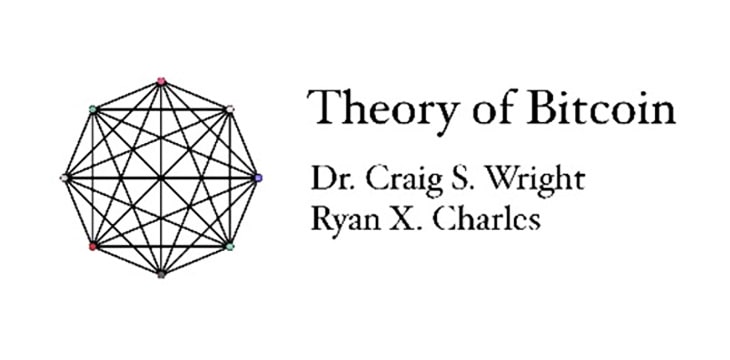|
Getting your Trinity Audio player ready...
|
The “Theory of Bitcoin” series continues with a look at some of Satoshi Nakamoto’s writings. The interview series between Dr. Craig S. Wright and Fabriik’s Ryan X. Charles begins on a slightly different note this week, with Charles asking Wright for his opinion on current events.
Asking Dr. Wright for that kind of commentary is bound to be controversial, and he doesn’t disappoint. The two begin by discussing the “deplatforming” of Donald Trump from Twitter and other social media services.
Deplatforming, and whether it’s possible to prevent it
Dr. Wright reveals that he himself was deplatformed by Twitter a few years ago, after complaining the network was infringing on his copyright by allowing certain materials to remain there. The company’s response was to remove his own account.
Asked whether it’s possible to build a social network where it’s impossible to deplatform someone, Dr. Wright says the answer lies with protocols and overlay networks, allowing users to choose what they see/don’t see and, perhaps more importantly, own their own data. In addition, users could move their data from one network to another. He gives email as an example: you can’t be deplatformed from one email app, and even if you were you could simply use another one. A Twitter-like messaging protocol could work by having users own their own feeds, and different services choosing whether they include those feeds in their own platforms or not.
You might have to pay, or at least micro-pay, to use these new breed of services. But the internet’s current ad-based revenue model is stale, and users are still “paying” for them through sale of their personal data and decreases in usability. They mention Baemail as an example of how Bitcoin developers are beginning to experiment with new models.
There’s a discussion of the Metanet, IPv4 vs. IPv6, conditional access to files, and how IPv6 (when properly utilized) makes better P2P networks possible. Charles notes that much of what’s broken about the internet and online services today could come from the over-dependence on IPv4, which has far fewer IP addresses and “forced” the world behind NAT routers—and into centralized services like Twitter and Facebook. Before the internet started to run short on addresses, P2P was more favored.
Back to the cryptography mailing list, and what people got wrong
At this point Charles returns again to Satoshi Nakamoto‘s original posts on the cryptography mailing list, pointing out how the “James Donald” character is playing the part of a “concern troll” in those first responses, expressing doubt at Bitcoin’s ability to do any of the things it promises… without having ever seen or tested the software. Charles notes that Donald’s responses actually form the basis for many subsequent misconceptions of Bitcoin and its purpose, repeated to this day.
Ray Dillinger’s responses are somewhat similar, though demonstrate a better attempt to understand Bitcoin. Dr. Wright notes that some of the misconceptions may have stemmed from earlier attempts at creating a “cryptocurrency” pre-Bitcoin.
There’s also an attempt to more clearly define Dr. Wright’s overall ideological stance, which appears to contain a mixture of different ideas. Libertarian? Classical Liberal? Even Neoconservative? Dr. Wright clarifies this somewhat, with views on governments, militaries, central banks and architecture. But please stay away from anything to do with Foucault and post-modernism, he advises.
If you’re tired of politics though, don’t worry as the conversation steers quickly back to topics like neural networks (and how they may be relevant to Bitcoin), the implications of transactions requiring many different conditions to be met before firing, and what happened when Dr. Wright tried to communicate some of his ideas to Google, in the pre-Bitcoin days. As always, “Theory of Bitcoin” is highly-recommended, if not essential, viewing for all those involved in the industry.
To watch previous episodes of the Theory of Bitcoin, check the Theory of Bitcoin YouTube playlist here.
Recommended for you
British lawmakers of the parliamentary national security committee have called for a temporary ban on political parties receiving donations in
Circle (NASDAQ: CRCL) soared in 2025 thanks to U.S. ‘regulatory clarity,’ but can this momentum survive a ban on crypto

 02-27-2026
02-27-2026 




